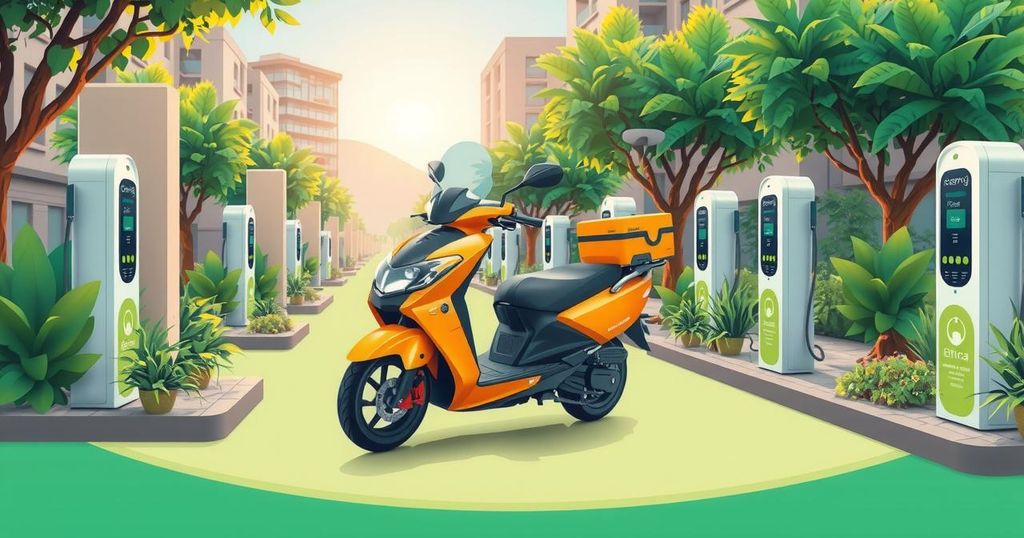Dodai Empowers Ethiopia’s Delivery Drivers with Electric Two-Wheelers

Dodai, an electric vehicle manufacturer in Ethiopia, focuses on assembling electric two-wheelers and has partnered with Ethiopian Investment Holdings for a battery swap station network. CEO Yuma Sasaki highlights the importance of addressing mobility issues in Ethiopia, where electric bikes are newly introduced. The company imports batteries but aims for local assembly, with plans for significant market expansion and a focus on delivery drivers.
Dodai is an electric vehicle manufacturer located in Addis Ababa, Ethiopia, specializing in assembling electric two-wheelers (2Ws). Recently, the company partnered with Ethiopian Investment Holdings to set up 100 battery swap stations in Addis Ababa within a year, with plans to expand to other cities thereafter. CEO Yuma Sasaki emphasizes the significance of addressing mobility challenges in Ethiopia’s populous market, having already sold roughly 700 electric bikes since their inception about two years ago.
The company imports complete 3.2 kWh LFP batteries from China for its electric bikes, with plans to assemble them locally in the future. Although there are no customer subsidies akin to those in India, there is a notable incentive in Ethiopia: no import duties on electric vehicles. The government’s strategy of imposing high duties on fuel-based vehicles makes EVs more financially appealing to customers, driving adoption in the region.
Dodai sells its electric bikes exclusively through physical showrooms to ensure better control over customer service. With three showrooms in Addis Ababa, which has a substantial population, they cater to customer interest by showcasing features in person. The plan is to expand to other Ethiopian cities with similar urban demographics, focusing mainly on urban mobility.
The core demographic for Dodai’s electric motorbikes comprises delivery drivers, particularly gig workers, who currently face challenges in obtaining number plates. However, recent announcements from the local government may soon ease these restrictions. As the business pivots to accommodate gig workers, it envisions these customers becoming the primary users of the future battery-swapping model.
Currently, riders can charge their bikes at home, but the establishment of public charging infrastructure is underway following government approval for charging station standards. The initial rollout will likely see the introduction of charging stations in the coming six months, with Chinese companies already eyeing expansion opportunities in Ethiopia.
In terms of vehicle penetration, electric cars are seeing faster adoption than two- and three-wheelers due to more accessible registration procedures for cars. Conversely, 2W and 3W registration remains cumbersome, which affects their growth. To address the infrastructure needs, Dodai has plans for a joint venture that will lead to the establishment of 100 battery swap stations, with a long-term goal of 400 by 2026, ensuring sufficient convenience for customers across available networks.
Dodai is establishing itself as a key player in Ethiopia’s electric vehicle market by addressing local mobility challenges with electric two-wheelers and upcoming battery swap stations. Its focus on partnerships and local assembly represents a strategic push towards a sustainable transportation model. The company aims to be at the forefront of the electric mobility movement in Ethiopia and beyond, with expansion plans firmly set in motion.
Original Source: evreporter.com




